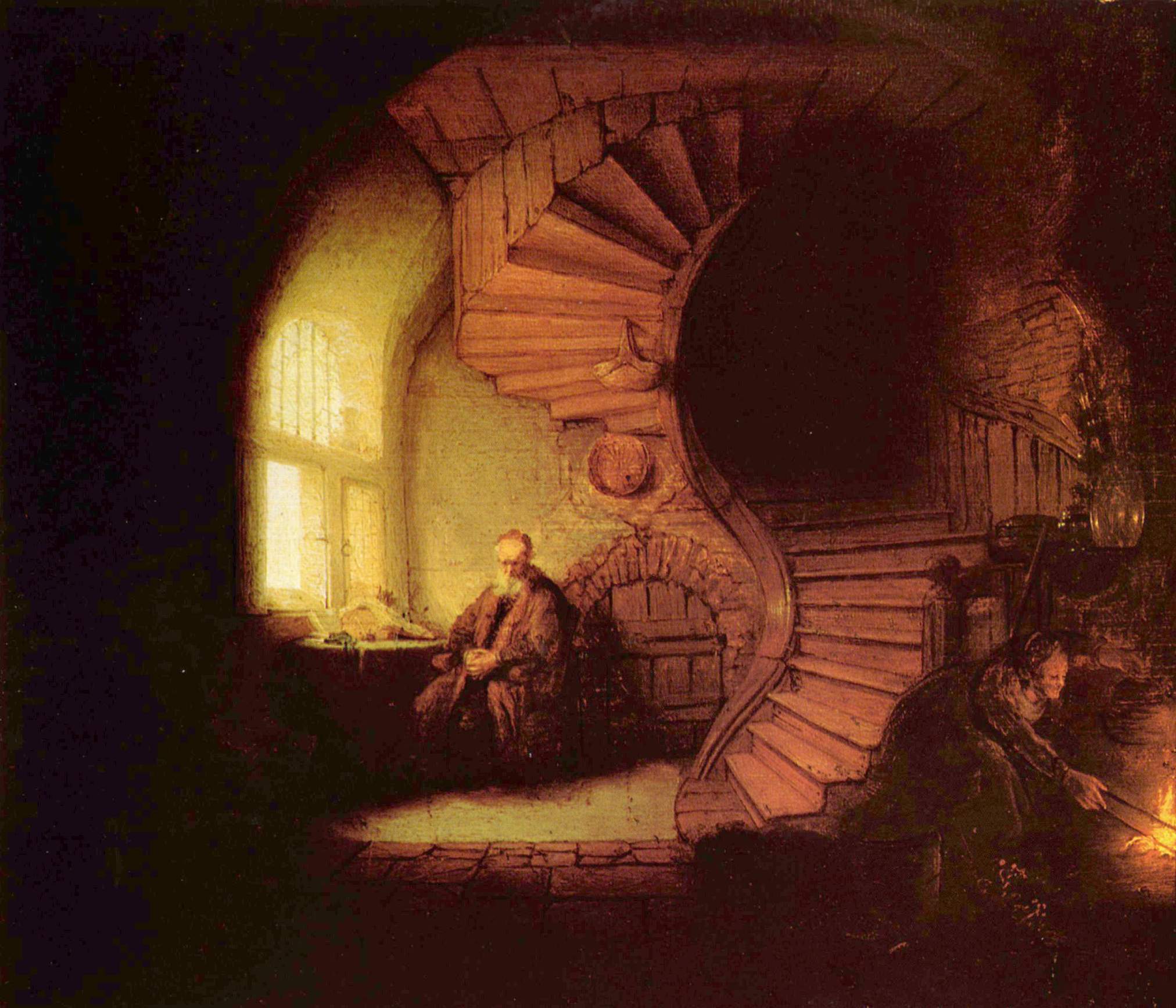ONE MAY ASK the imponderable question (at first): What do the hatreds of Islam and secular atheism (either the so-called scientific or superficial postmodern denizen brand) for Judaism and Christianity have in common?
As distinguished physical chemist and philosopher Michael Polanyi has demonstrated, scientific "objectivity" and "detachment" are myths. Scientists put faith in a multitude of factors: an empirical reality that is perceptible and measurable; laws of cause and effect that apply universally; a research community whose findings are dependable and free from fraud. "
We must now recognize belief once more as the source of all knowledge ..." Polanyi said. "
No intelligence, however critical or original, can operate outside such a fiduciary (faith-based) framework" [From Scott Hahn's book,
Reasons to Believe, p. 18]. To think otherwise is to doom all human thought to mere nihilism and meaninglessness. John Polkinghome, former Professor of Mathematical Physics at Cambridge, levels this criticism at R. Dawkins’ and John Humphrys’ shallow scientific triumphalism
here.
And what of Islam? As scientific reductionism views reality from the paradigm of a certain set of presuppositions that exclude God, Islam regards reality with its deity, "Allah", from the viewfinder of a certain set of presuppositions that seem to the Christian who breaths the air of the freedom of faith and reason to be pretty drab and hopeless by comparison. "Allah" and indeed all of reality are in no way conscripted to rules and laws, even those imposed by the deity. The only --
the only -- bit of truth and wisdom in the worldview of Islam tossed to a faithful race of slaves are the scraps of paper called the Koran. Everything else is flux, chaos, warfare, and death. No wonder even moderate Muslims consider the pharisaically legalistic hard-liners with a respect due to "holy" men! Hell -- if the "lifeline" is all there is, those who cling to it most stubbornly, consistently, and ferociously ARE the "good guys"!
Both scientific reductionism and hard-line Islam despise the Biblical faith of Jews and Christians because it has been around a lot longer, has thought about such matters as their presuppositions alot longer, and, without wanting to sound triumphalistic, KNOWS a lot more about faith and reason than either of them too. It falls, once again, into the Model/Rival template of René Girard's mimetic theory, with the Biblical faiths' truth claims being the object of fascination and scorn and desire. As Jean DePuy has said, desire (anthropologically speaking) is
"a secret fascination for the apparent autonomy of the other which cannot rest until it has demystified it.” And Hamerton-Kelly:
"The failed mind is a mind enslaved. It desires not only to possess the other, but to consume or destroy. It wishes not only to imitate the other, nor merely to possess itself in the other, but to destroy the other as the place where the self is alien to the self.”
And here we see the meeting-place of atheism and Islam: a mutual desire "not only to possess," but "to consume ... to destroy" the place occupied by the Church, her deposit of faith and reason, and all that has been influenced by this Other. They look like formidable foes, these two. Which side would you say you find yourself? One has hope, as the
Holy Father, Benedict XVI has proclaimed. The others offer slavery and drudgery on the one hand, and nihilistic hopelessness on the other. You choose.












